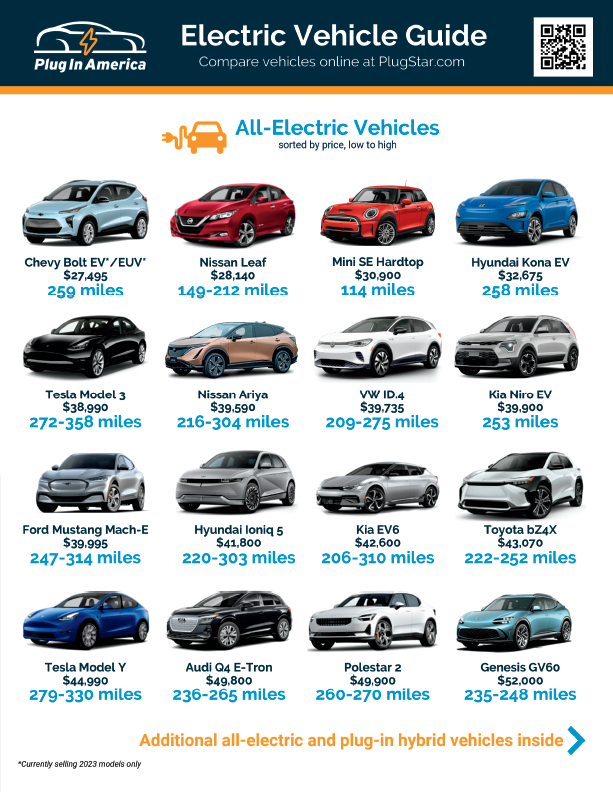Viva Resa: Your Gateway to Insightful Living
Discover news, trends, and tips for a vibrant lifestyle.
Why Your Next Car Should Run on Batteries Instead of Gas
Discover the surprising benefits of electric cars! Find out why going battery-powered is the smart choice for your next vehicle.
The Future of Driving: Why Battery-Powered Cars Are Better than Gas
As we move further into the 21st century, battery-powered cars are proving to be a superior alternative to their gasoline counterparts. One of the most compelling reasons for this shift is the environmental impact; electric vehicles (EVs) produce zero tailpipe emissions, significantly reducing air pollution in urban areas. Moreover, according to the U.S. Environmental Protection Agency, the lifecycle emissions from EVs, including manufacturing and electricity generation, are often lower than those from traditional cars when considering renewable energy sources. This transition is not just a trend but a necessary evolution in our quest for sustainability and cleaner air.
Another critical advantage of battery-powered cars is their operational efficiency. EVs are generally cheaper to maintain because they have fewer moving parts than gasoline vehicles, resulting in lower maintenance costs over time. Edmunds reports that the total cost of ownership for electric vehicles can be significantly less than that of gas-powered cars, especially when considering the rising prices of gasoline and potential future fuel shortages. As battery technology continues to improve, with advances in range and charging speed, the barriers that currently limit EV adoption will continue to dissolve, paving the way for a cleaner, more efficient future on our roads.

10 Compelling Reasons to Choose an Electric Vehicle Over a Gasoline Car
As more people become conscious of their environmental impact, choosing an electric vehicle (EV) over a gasoline car is becoming an increasingly compelling choice. Here are ten reasons why you should consider making the switch:
- Eco-Friendly: EVs produce zero tailpipe emissions, helping to reduce air pollution and combat climate change. According to the EPA, the reduction of greenhouse gases is one of the significant benefits of driving an electric car.
- Cost Savings: While the upfront cost of an EV can be higher, many owners save money in the long run through lower fuel and maintenance costs. A report from Energy.gov shows that electric costs for charging are significantly less than gas prices.
In addition to environmental benefits, electric vehicles offer modern technology and convenience:
- Innovative Features: Many EVs come equipped with advanced technologies such as regenerative braking and smart charging capabilities, enhancing the driving experience and efficiency.
- Home Charging: Charging your EV at home is not just convenient but can be more economical. Studies indicate that home charging can be significantly cheaper than refueling at a gas station, as highlighted by Plug In America.
Is It Time to Make the Switch? Understanding the Benefits of Electric Vehicles
As the world becomes increasingly aware of the environmental impact of traditional fossil fuel vehicles, many are asking, Is it time to make the switch to electric vehicles (EVs)? One of the most significant benefits of EVs is their reduced carbon footprint. According to the U.S. Department of Energy, electric vehicles produce zero tailpipe emissions, which can significantly improve air quality in urban areas. Additionally, as more renewable energy sources are integrated into the electricity grid, the overall emissions associated with charging EVs continue to decrease. This shift not only contributes to a cleaner environment but also aligns with global efforts to combat climate change.
Another compelling reason to consider making the switch is the potential cost savings associated with electric vehicles. EVs typically have lower maintenance costs compared to their gasoline counterparts due to fewer moving parts and less wear on the engine. The Union of Concerned Scientists estimates that owners can save significantly over the life of the vehicle when factoring in fuel savings, government rebates, and tax incentives. Moreover, as technology continues to advance, the upfront costs of electric vehicles are decreasing, making them more accessible to a broader audience. In summary, not only do EVs offer a path towards sustainability, but they also present an economically savvy choice for the future.